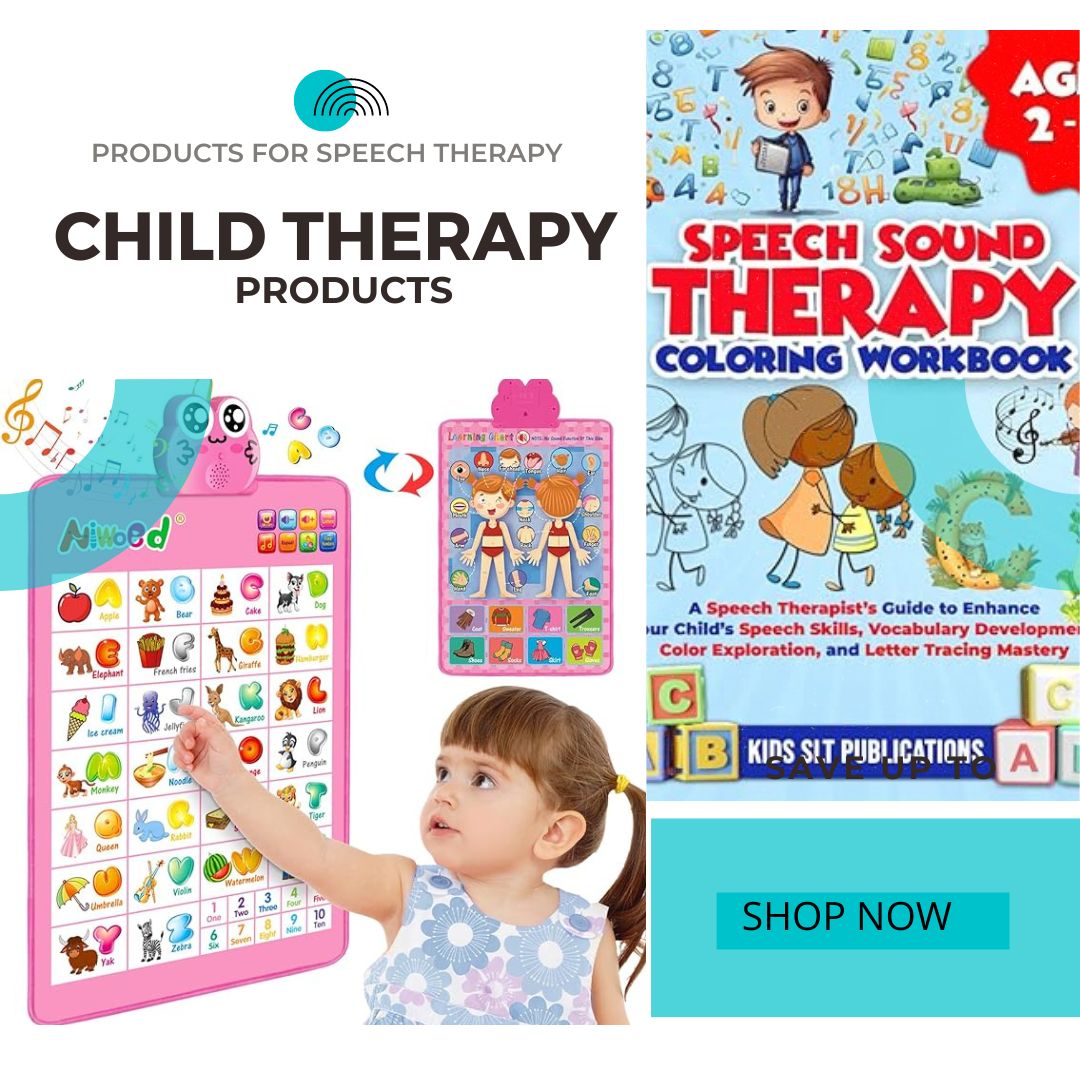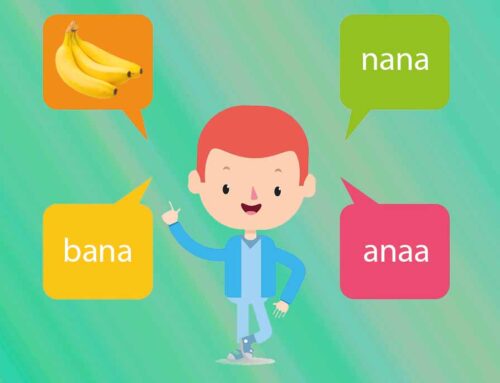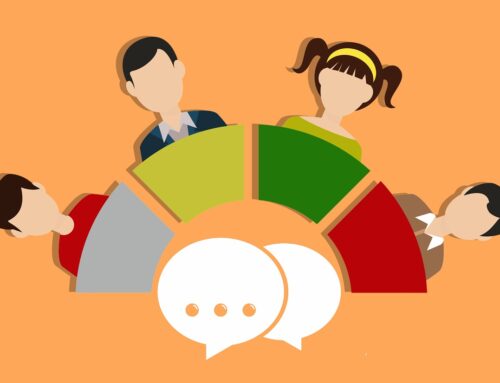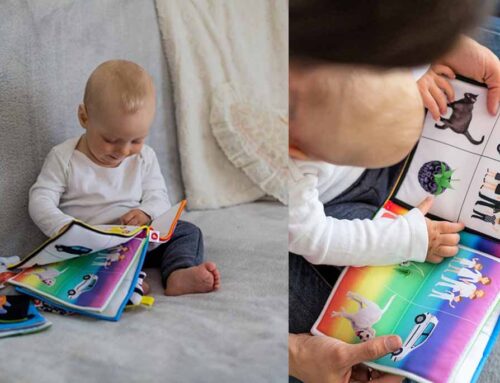Echolalia, the automatic repeating of words or phrases just spoken by another person, is a common symptom seen in various developmental disorders like autism spectrum disorder.
However, echolalia can also occur in typically developing children and even adults without an underlying disorder.
Speech therapy can be an effective intervention for echolalia at any age. This article will explore what echolalia is, why it happens, and how speech therapy techniques can help treat it.
What is Echolalia?
Echolalia comes from the Greek words “echo” meaning to repeat, and “lalia” meaning speech. It is categorized as an immediate or delayed echo:
- Immediate echolalia occurs when someone immediately repeats words or phrases spoken by another person. For example, if you say “Hi Joey, how are you?” and Joey responds “Hi Joey how are you?”.
- Delayed echolalia happens when a person repeats phrases they have heard previously, sometimes days or weeks later. This is common in autism as “scripting” where someone repeats lines from a TV show or book.
Echolalia serves different purposes for different people. It can be a way of processing language and learning to communicate. Some use it to self-regulate their emotions or to buy time to formulate a response. In autism, echolalia is linked to challenges with functional, flexible language skills.
Apart from that, if you will read article of Kamakshya P. Patra on ncbi.nlm.nih.gov, you will find out that the Echolalia was first described in 1943 by Kanner in 11 children with autism. Apart from autism, it has also been described in several other disorders, mentioned below:
- Aphasia
- Autoimmune disorders
- Closed head injury
- Congenital blindness
- Cortico-basal degeneration
- Delirium
- Dementia
- Encephalitis
- Primary familial brain calcification
- Gilles de la Tourette syndrome
- Intellectual disability
- Language delay
- Latah reaction/phenomenon
- Pick disease
- Frontotemporal dementia
- Progressive supranuclear palsy
- Schizophrenia
- Stroke
- Confusional states
- Postepileptic status
Here’s a book which is written by Dr Victoria Efimova on Echolalia. It is quite popular among the parents, speech therapists, and speech pathologists as this book presents a fresh point of view, based on the analysis of international linguistic research and the extensive experience of the team of neurologists, speech therapists and psychologist at the children’s Neurological clinic “Prognosis” in St. Petersburg, Russia.
Why Does Echolalia Happen?
There are several theories on why immediate and delayed echolalia occurs:
Language Processing Difficulties
Some individuals repeat words as an intentional strategy to aid their language processing. As words are spoken to them, their brains are still working to comprehend the meaning.
By echoing the words, they are able to briefly hold the language in their working memory and buy extra time to decode the sentence.
This immediate repetition helps preserve the fleeting auditory input so they can fully understand what was said. Echolalia allows them to slowed down the rapid pace of conversation to properly process the language.
Communication Deficits
When a person has an underdeveloped language system or vocabulary, echolalia can serve as a stop-gap communication strategy.
If a child does not have the language skills to respond meaningfully, they can participate in the conversation by simply repeating key words. It keeps the social exchange going until the child acquires enough skills to formulate original responses.
Echoing shows listening comprehension even if expressive skills are lacking.
Executive Functioning Challenges
Some neurodiverse individuals struggle with executive functioning skills like planning, initiation, flexibility, and self-monitoring.
These top-down cognitive skills are needed to formulate your own unique speech. When they are impaired, it is easier to respond by repeating others’ words rather than initiating brand new language.
Echolalia compensates for difficulties with language ideation and self-cueing speech.
Social Relating Difficulties
Many with autism have trouble understanding the social aspects of communication like reciprocity, nonverbal cues, and shared meaning. Their echos may be an attempt to make a social connection even if they cannot respond appropriately.
Echolalia shows interest in interacting and that they recognize certain words have social significance. It serves a relationship building purpose.
Auditory Feedback Needs
Our own voice provides us with auditory input that is comforting, organizing, and helps us regulate.
Some children and adults need more vocal self-stimulation and echo to satisfy their sensory needs. They may also use immediate echoes to verify their accurate perception of words and sounds.
Echolalia provides them with necessary auditory feedback.
Learning Mechanism
Echolalia allows children to associate words with their meanings which aids language acquisition.
Typically developing kids will often repeat new vocabulary to solidify those word-meaning connections in their brain. Children with autism may rely more heavily on this echo learning.
They benefit from the repetition echolalia provides to absorb vocabulary and language rules.
Coping Strategy
Finally, echolalia may serve as a coping mechanism for uncertainty, transition, or anxiety during social situations. The automatic repetition reduces cognitive load and brings a sense of familiarity and control. It can be a self-soothing technique when overwhelmed. The echos function as scripted behaviors that make social expectations more predictable.
Overall, echolalia appears to serve multiple cognitive and communication functions. With supportive therapy, echos can often transform into functional, original language over time.
Speech Therapy Techniques for Echolalia
Speech therapy provides a customized program to meet a child or adult’s echolalia treatment goals. Targets will depend on their needs but often focus on:
- Reducing immediate echolalia
- Increasing spontaneous language use
- Improving back-and-forth conversation skills
- Expanding flexibility with language
Key techniques that are used by speech-language pathologists include:
- Communication temptations: This prompts spontaneous speech by pausing expectantly after a question. Repeating or expanding the child’s utterance further elicits original words.
- Visual supports: Pictures, written words, and gestures help process language and formulate an echo-free reply.
- Social scripts: Rehearsing appropriate responses to common social exchanges reduces reliance on echos.
- Language recasting: Subtly rephrasing a child’s echo into a reply encourages alternative responses.
- Reinforcement: Praising all spontaneous language, even single words, motivates communication.
- Self-monitoring: Having a child identify when they echo can help them gain control.
- Language expansion: Adding a word or two to what a child says promotes turn-taking.
- Role play: Practicing dialogues helps apply conversation skills flexibly.
- Functional communication training: Replacing echolalia with more effective words or signs to get needs met.
Alongside these techniques, speech therapy engages a child’s interests, uses visual aids, provides choices, incorporates movement, and leverages repetition to aid learning. With a consistent, individualized approach, a child’s echos can evolve into purposeful, meaningful communication.
Is Speech Therapy Effective for Echolalia?
Research shows promising outcomes using speech therapy to treat echolalia in both children and adults:
– In 2023, a systematic search was conducted according to the Preferred Reporting Items for Systematic Reviews and Meta-Analyses (PRISMA) guidelines. The results indicated that interventions generally decreased levels of echolalia.
Source: https://onlinelibrary.wiley.com/doi/10.1111/1460-6984.12931
– A case study on an 8-year-old boy found speech therapy targeting immediate echolalia helped increase his spontaneous utterances from 10 to 85% after 7 months.
Source: https://pubs.asha.org/doi/10.1044/0161-1461(1978/ja-46)
– Training adults with brain injuries to use self-cuing strategies independently decreased echolalia episodes by 90% compared to clinician cuing.
– A 36-year-old man with severe aphasia reduced echolalia through speech therapy focusing on picture supports and consistently responding only to spontaneous speech.
Source: https://www.tandfonline.com/doi/abs/10.1080/02687030244000231
– Children with hearing impairment benefited from strategies like close listening, language expansion, and parallel talk to develop speech from echolalia.
While more research is needed, these results indicate speech therapy can help transform echolalia into meaningful communication when tailored to an individual. Consistency is key for progress.
Echolalia Across Ages
Echolalia can present differently and serve varying functions across ages:
Echolalia in babies
- Normal from 6-12 months as babbling play and early word learning
- May persist if language delayed
- Respond by expanding utterances
Echolalia in 2-3 year olds
- Peaks around 30 months
- May indicate mild language delay
- Use modeling, expansion, wh- questions to prompt speech
Echolalia in 4-5 year olds
- Concerning if still immediate echos
- Assess language skills and intervene early
- Increase nonverbal cues, pause time, reinforce spontaneous words
Echolalia in older children/teens
- More likely delayed echolalia or scripting
- Work on conversational turn-taking, social pragmatics
- Teach flexible thinking and problem-solving
Echolalia in adults
- Can follow stroke, TBI, dementia, schizophrenia
- Target functional communication skills
- Provide written cues, teach coping strategies
Though it may present differently, speech therapy techniques can be tailored successfully at any age. Consistency and motivation are key and it also depends whom your consulting. It is recommended always get the advice from a trained an experienced speech language pathologist having more then 5 years of experience.
In Conclusion
Echolalia can have a variety of sources and functions. Specific methods are offered by speech therapy to convert echos into useful communication. Individualized speech treatment can assist develop spontaneous language, despite its challenges, particularly in autism.
Treatment for echolalia can improve quality of life and communication for people of all ages when done consistently.
So those who looking for the answer, Yes Echolalia can be treated with speech therapy but make sure get the treatment from a licensed speech-language pathologist online or offline. An experience therapist will help reduce a echolalia either in therapy or in conjunction with therapy.




